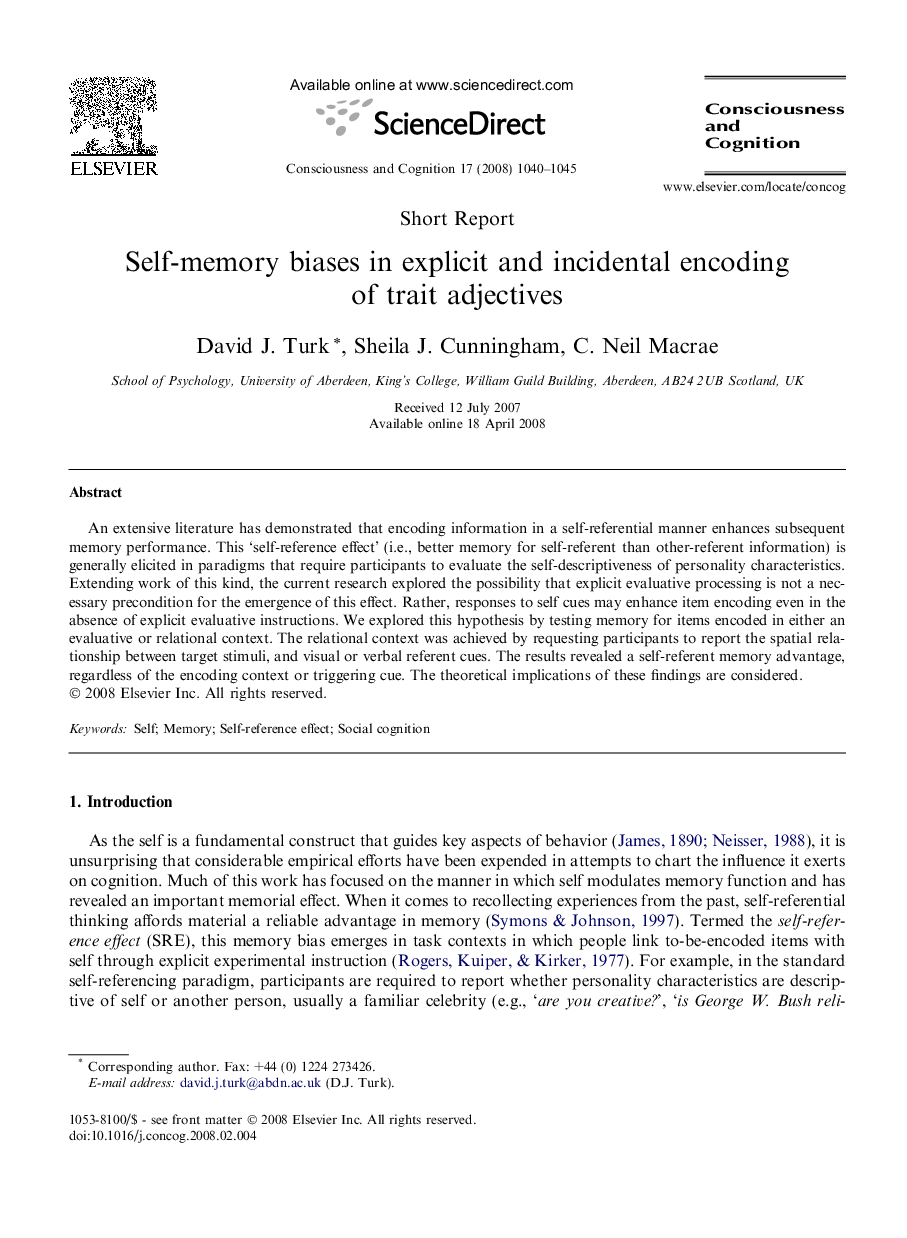| Article ID | Journal | Published Year | Pages | File Type |
|---|---|---|---|---|
| 928075 | Consciousness and Cognition | 2008 | 6 Pages |
An extensive literature has demonstrated that encoding information in a self-referential manner enhances subsequent memory performance. This ‘self-reference effect’ (i.e., better memory for self-referent than other-referent information) is generally elicited in paradigms that require participants to evaluate the self-descriptiveness of personality characteristics. Extending work of this kind, the current research explored the possibility that explicit evaluative processing is not a necessary precondition for the emergence of this effect. Rather, responses to self cues may enhance item encoding even in the absence of explicit evaluative instructions. We explored this hypothesis by testing memory for items encoded in either an evaluative or relational context. The relational context was achieved by requesting participants to report the spatial relationship between target stimuli, and visual or verbal referent cues. The results revealed a self-referent memory advantage, regardless of the encoding context or triggering cue. The theoretical implications of these findings are considered.
